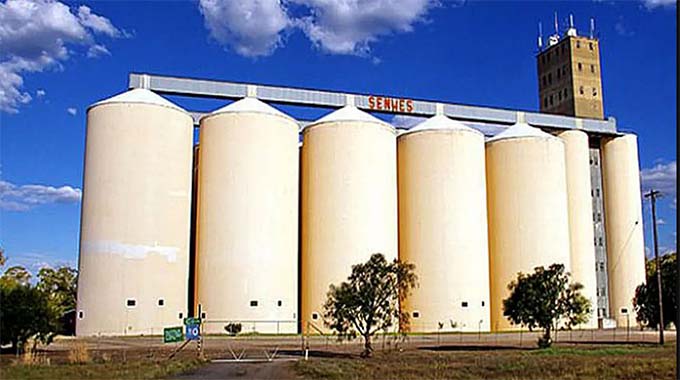January disease vaccine at trial stage

Patrick Chitumba, Midlands Bureau Chief
ZIMBABWE is developing a vaccine, now on trial stage, which will be a game changer in the fight against the deadly Tropical theileriosis, a tick-borne disease in cattle popularly known as January disease.
Theileriosis has killed thousands of cattle countrywide every rainy season in the past few years. January disease is common between December and March and is spread through the bite of the brown ear tick.
The four major tick-borne diseases that affect cattle are heart water, anaplasmosis or gall sickness, babesiosis or red water and theileriosis or January disease.
In the past year, January disease accounted for over 60 percent of all cattle deaths due to tick borne diseases.
The Department of Veterinary Services is producing 100 000 doses of theileriosis vaccine to fight January disease as part of its growing efforts to save and boost livestock production in the country.
So far, over 20 000 doses have been produced so the vaccine will be in use before the rains begin and the ticks that carry the disease are able to start flourishing.
Zimbabwe is moving ahead on several fronts to fight tick-borne diseases by building, rebuilding and renovating dip tanks, ensuring that the subsidised dipping chemicals are brought to the tanks, by handing out tick grease to farmers and now by manufacturing vaccines.
The country’s 2020-2025 Livestock Recovery Growth Plan identifies livestock diseases as one of the key intervention points requiring urgent attention to correctly position the livestock sector for meaningful contribution to the national development strategy.
The Livestock Recovery Growth Plan is aimed at increasing the national herd to 6 million by 2023 from the current 5, 5 million in a bid to meet national demand for cattle products and substitute imports.
In an interview, the Permanent Secretary in the Ministry of Lands, Agriculture, Fisheries, Water and Rural Development, Dr John Basera said the January disease vaccine is almost ready with scientists assessing whether or not the shot has side effects before farmers can start accessing it on the market.
“So we also have another scientific intervention in the form of coming up with our own vaccine to fight January disease. The vaccine is still under development and it is now in phase three which is the last leg of its development,” he said.
“Work on producing the vaccine for January disease is now at an advanced stage with scientists now assessing if the vaccine has side effects and how to counter them. We are now doing field trials so that we ascertain whether there are no after-effects and so on, but so far we are happy with the results.”
Dr Basera said the vaccine will help contain the scourge of January disease. He said between 2015-2016 farmers across the country lost half a million cattle to the January disease.

Dr Basera
Dr Basera said other preventive measures including dipping cattle regularly and applying tick grease are important in the fight against January disease.
He said dipping remains one of the most critical components in disease control and urged farmers to embrace the 5-4-4 dipping regime in tick-infested areas.
“Following the 5-4-4 dipping regime is important. This dipping regime entails dipping cattle after five days and after four days and then after another four days,” said Dr Basera.
“We need to enforce that law because that’s our only panacea to contain January disease and other tick-borne related diseases.”
Dr Basera said some interim stop-gap measures put by the Government to contain the disease include the distribution of tick grease to one million cattle-owning households across the country.
“We have been distributing tick grease as a stop-gap measure. If a farmer smears his cow or bull with tick grease, especially on the usual tick feeding sites that is between the legs, under the tail, at the tail brush and in the ears, the animal will be immune from the ticks for the next 25 days,” he said.
A blitz tick-grease programme under Presidential Input Scheme has also been running for the past two seasons and has been a major boost in the fight against January disease and the programme will continue this season.
During the wet season, animals are susceptible to many challenges, and if a farmer is not careful, they may be killed by various diseases including tick-borne diseases.
To secure the country’s herd, Dr Basera said the Ministry of Lands, Agriculture, Fisheries, Water and Rural Development also initiated the Dip Resuscitating Programme meant to improve basic dip tank infrastructure throughout the country.
“Government will continue rehabilitating dip tanks across the country to combat and contain the January disease and other tick-borne infections,” he said.
“We are working flat out to make sure that we have the best infrastructure for farmers to dip their cattle which is the ultimate panacea and ultimate intervention and ultimate solution to contain January disease and other related diseases that affect the animals.”
The national cattle herd began to gradually increase after the country recorded a commendable 47 percent drop in livestock deaths due to intensive tick grease and dipping programmes.
“Following interventions such as the dip tank rehabilitation and resuscitation and tick grease programmes, we have seen a reduction, in fact, a significant reduction, a sharp reduction in terms of January disease cases and deaths by over 47 percent which is quite incredible,” he said.
“So we will carry on with the tick grease programming whilst we are working on resuscitating and rehabilitation of deep tanks and the vaccine.”
Dr Basera said the country has seen a 2 percent decline in cattle mortality, as the Government’s livestock recovery and growth plan takes effect in combating tick-borne related diseases.
“We have managed to reduce the cattle mortality rates from 11 percent last season to 9 percent this year, as a result of the religious implementation of the Presidential tick grease programme,” he said.











Comments